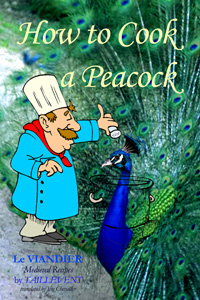cited in Edgar Allan Poe's "A Chapter on Autography"

HOME PAGE

CALVERT, George Henry 1803-1889 - A great-grandson of Lord Baltimore; his works were once widely known. Editor of the Baltimore American for several years. Having moved to Newport, Rhode Island in 1843, he became mayor in 1853. He wrote a number of biographies, books of poetry and essays, as well as Illustrations of Phrenology (1832).
CASS, Lewis 1782-1866 - He began as a lawyer in Ohio, was elected to the legislature and subsequently served both in government and the military, notably in the War of 1812. As civil governor of Michigan he arranged treaties ceding Indian land to the United States while, over eighteen years, building up an administrative infrastructure. Accounts of an 1820 expedition to the headwaters of the Mississippi, published in the North American Review several years later, added to his fame. Subsequently, he was much involved in politics and other military conflicts. He also published Inquiries concerning the History, Traditions, and Languages of the Indians living within the United States (1823) and France, its King, Court, and Government (1840).
CHANDLER, Joseph Ripley 1792-1880 – From 1822 to 1826, he revived the United States Gazette and remained with the paper, a prominent Whig journal, until 1847. He was a Whig member of Congress (1849-1855), then minister to the Two Sicilies. Very interested in prison reform, he wrote on that as well as other subjects, including grammar, in a Grammar of the English Language (1821).
CHANNING, William Ellery 1780-1842 - A New England clergyman, and a compelling orator, increasingly involved with the anti-slavery cause. He became known – apparently despite himself – as the leader of the Unitarians in the 20’s and 30’s. His essays in the North American Review and the Christian Review gained him a wide literary reputation. His writings on slavery include The Slavery Question (1839), a tract on "Emancipation” (1840), and a piece on "The Duty of the Free States” (1842), which addressed the case of slaves who had seized the brig "Creole,” and brought it to Nassau.
CHIVERS, Thomas Holley 1807-1897 - A Georgia doctor, he wrote poems said to have influenced Swinburne and Rosetti. Two of his poems, “To Allegra Florence” and “Isadore”, have been suggested as models for “The Raven”. The last pleiad and other poems (1845) was his most popular work. He wrote a Life of Edgar Allen Poe, as well as articles trying to show Poe’s debt to his own work.
CIST, Lewis Jacob 1818-1885 – Banker, poet and collector of autographs and portraits. Already as a boy he wrote poetry and music. He wrote for the Western Monthly Magazine, Hesperian, and Cist's Weekly Advertiser, and for several years, h published the Souvenir, the first annual of the West. Poe, reviewing his collected Poems (1845) in the Broadway Journal wrote that Cist had many admirers. He is virtually unknown today.
CONRAD, Judge Robert Taylor 1810-1858 - A poet, lawyer, judge, editor and public speaker, he published the tragedy Conradin before he was twenty-one. Between sitting on the bench and editing or publishing several periodicals (including Graham’s Magazine), he wrote tragedies, including Aylmere and The Heretic. His collection Ayhnere, or the Bondmand of Kent, and other Poems (1852) includes “The Sons of the Wilderness”, on the plight of Native Americans.
COOKE, Philip Pendleton 1816–1850 - A Virginian poet and lawyer, he loved practical pursuits such as hunting and fishing. Reviewing Poe’s work, he said he hoped to read “one cheerful book made by his imagination” (!). Most known for the Froissart Ballads, he wrote both prose and poetry for the Knickerbocker Magazine, the Virginian and The Southern Literary Messenger.
COOPER, James Fenimore 1789-1851 - Novelist. His second novel, The Spy (1821), set during the Revolutionary War, brought him fame and wealth. The Pioneers (1823) introduced Natty Bumppo, who then appeared in subsequent “Leatherstocking Tales”: The Last of the Mohicans (1826), The Prairie (1827), The Pathfinder (1840) and The Deerslayer (1841). These made him popular in Europe. He also wrote a series of sea novels, starting with The Pilot (1823), and a History of the Navy of the United States of America (1839).
 the Bastille |
AUTOGRAPHY home page |

a Peacock |
Books |